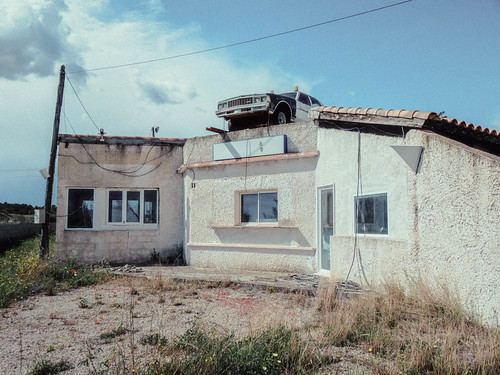Posts by author:
Chris Bertram
Emmanuel Macron’s decision to call legislative elections in France, following a strong showing for the extreme-right-wing Rassemblement National of Marine Le Pen constitutes an extreme risk. No doubt he thinks that either the RN will fail to get as many seats as they hope under France’s two-stage election system or he calculates that since he will remain President he has the option of another dissolution as soon as the right-wing government experiences a dip in popularity. Whatever his calculation, his immediate strategy rests upon the notion that a Republican Barrier exists to keep out Le Pen: the idea being that all those parties opposed to Pétainism and collaboration with the occupiers in WW2 can be relied up to favour one another over the RN in the second round of elections where two remaining candidates compete.
This notion has already come under severe strain, however, as the President of the Gaullist Les Républicains party, Eric Ciotti, has to the outrage of most of his fellow leaders, proposed an alliance with the extreme right [update, Ciotti has now been expelled from the party] and Macron himself has sought to exclude La France Insoumise, the far left party of Jean-Luc Mélenchon, from the Republican family. (Perhaps he hopes that LFI voters will back his party anyway in the second round. If so, he’s been irrationally optimistic.)
In any case, I think the whole idea of a Republican Barrier, as currently formulated, is based on the idea that the divisions of 1940 (which themselves to some extent echo divisions of the 1890s, the Second Empire, the Restoration and before that the Revolution), are salient to modern voters irrespective of the policies actually pursued by “Republican” parties, which, to be honest, may not differ all that much from those of the far right. Granted, divisions based on which side grandpa and even great-grandpa were on can be surprisingly enduring: consider Ireland where the divisions between Fine Gael and Fianna Fail, centre-right pro-capitalist parties both, have persisted for decades based on the opposing sides of a civil war now a century old.
[click to continue…]
Something that’s bothered me for a while is the relationship between politics and friendship. Not just close friendship but also people who you are happy to hang out with socially. Some topics – I’d include Brexit, trans rights and Israel/Palestine – are especially divisive in that people who disagree on these seem to find it very hard to tolerate one another. (The woke/anti-woke split is also a marker, though it is tempting just to push back against whoever is being the most irritating and dogmatic in some given context.) Anyway, in those oppositions the other side is, you think, marked by some combination of stupidity and moral perfidy, such that it is impossible to retain the minimal degree of respect that friendship requires.
Except, except, there’s always someone whose personal charm or the fact that something other that politics is the basis for friendship means that they get forgiven or excused even when they say something that’s really off. And who is available makes a difference too: if you are in a small community or a workplace or a family then you may not have to rub along with the people you disagree with, but it is better if you do because you’re inevitably going to be seeing a lot of them.
Here’s something that’s particularly insidious: you don’t know if you disagree with some person, but you suspect, on the basis of some fact about them (religion, ethnicity, age, nationality, etc.) that you might. Though they are someone that seems nice, you don’t have such a deep friendship with them that means a rift would painful. You don’t want to ask them directly, it would be rude, and there seems to be something discriminatory about doing so: “Because you have characteristic X, I suspect you might believe something, and I need to know…” Why ask them if you aren’t going to ask everyone the same question, after all? So you don’t, but you don’t really want to risk discovering that they are, as you think of it, a bigot: that could lead to a painful argument or just mutual embarrassment. So you prefer to avoid, not to engage, and you drift apart through this shunning, which might be mutual: perhaps they also suspect that you are the kind of person who holds the belief of which they disapprove. But you never really know, you just suspect a possibility, an opportunity is lost, and the object of your shunning may be left with the thought that you are no longer having to do with them because of their age, ethnicity, etc. And in a certain sense, they wouldn’t be wrong.












